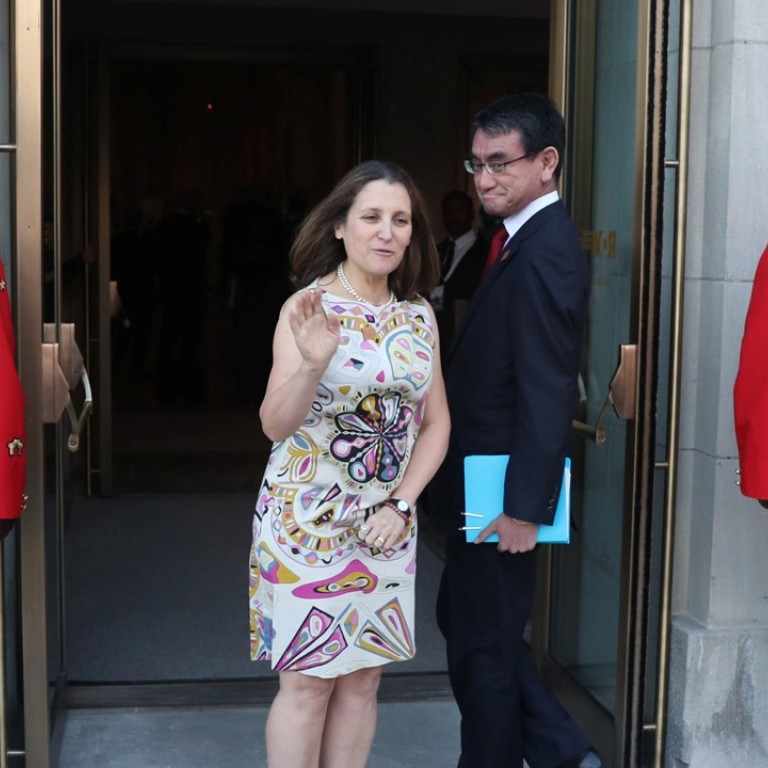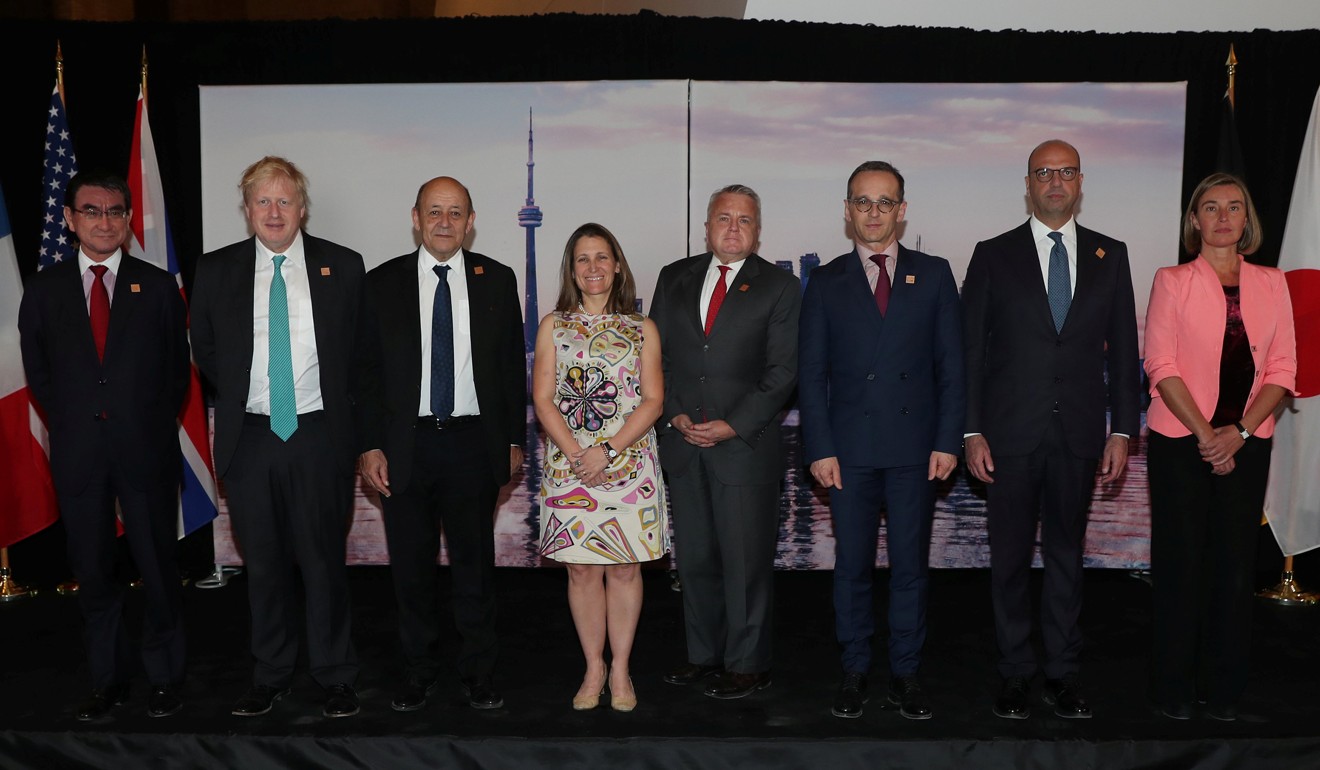
G-7 will never accept nuclear-armed North Korea, says Japanese foreign minister Taro Kono
Kono also corrected US President Donald Trump’s false assertion that North Korea had agreed to denuclearisation
Group of Seven foreign ministers affirmed Sunday they will never accept a nuclear-armed North Korea and pledged to maintain “maximum pressure” on Pyongyang until it rids itself of nuclear weapons, Japanese Foreign Minister Taro Kono said.
“We fully agreed that we will never accept a nuclear-armed North Korea,” Kono said on the first day of a two-day meeting in Toronto, Canada, suggesting Pyongyang’s announcement that it will suspend nuclear tests and long-range missile launches was insufficient to meet the demands of the international community.

But Kono added, “Compared to North Korea’s behaviour thus far, it marks one step forward. We welcome it as a positive step.”
The G-7 ministers called for North Korea to abandon all weapons of mass destruction, including biological and chemical weapons, and its ballistic missile programmes, including short- and medium-range missiles capable of hitting South Korea and Japan, according to Kono.
The other G-7 members – Britain, Canada, France, Germany, Italy, the United States plus the European Union – meanwhile backed Kono’s call for the immediate resolution of North Korea’s abduction of Japanese nationals in the 1970s and 1980s.
The ministers met a day after North Korea said it will suspend nuclear tests and long-range missiles launches, as well as dismantle its only known nuclear test site, a pronouncement seen as leader Kim Jong-un playing a card ahead of his meetings with South Korean President Moon Jae-in on Friday, and with US President Donald Trump, expected in late May or early June.

On Iran, the G-7 ministers were apparently at odds over the 2015 deal curtailing Tehran’s nuclear capabilities. Washington is calling for the deal to be revised, while European nations vowed to promote it as way of preventing Tehran from developing nuclear weapons.
With Trump threatening to withdraw the United States if an agreement to revamp the deal cannot be reached before a May 12 deadline, Kono said “many ministers” sought “continuous and complete implementation” of the existing deal.
The deal was struck in 2015 between Iran and six major powers – Britain, China, France, Germany, Russia and the United States under the administration of Trump’s predecessor Barack Obama.
The G-7 ministers also discussed the Syria crisis following US-led air strikes earlier this month on sites associated with the country’s chemical weapons capabilities.
The military action by the United States, Britain and France came after the alleged use by Syrian President Bashar al-Assad’s regime of chemical weapons on Syrian citizens.
The G-7 exchanged views on Myanmar’s human rights situation, Russia’s intervention in Ukraine and other regional issues, as well, according to Kono.
The Toronto session will lay the groundwork for a G-7 leaders’ summit slated for June 8-9 in Charlevoix, Quebec.

